TV SHOWS
Drew Barrymore ‘Pauses’ Talk Show Return After Criticism From Striking Writers and Actors
Published
8 months agoon

Courtesy of rebelpopcult/Instagram
Drew Barrymore reversed course on Sunday, announcing that she will “pause” the return of her daytime talk show until the Hollywood strikes are resolved, after receiving widespread criticism for her decision to resume production last week.
Barrymore announced on Instagram Sunday that she “listened to everyone.”
“I have listened to everyone, and I am making the decision to pause the show’s premiere until the strike is over,” Barrymore wrote in the statement.
“I have no words to express my deepest apologies to anyone I have hurt and, of course, to our incredible team who works on the show and has made it what it is today. We really tried to find our way forward. And I truly hope for a resolution for the entire industry very soon,” she wrote.
Last week, Barrymore was dropped as host of the upcoming National Book Awards, after she announced that “The Drew Barrymore Show” would resume production despite the ongoing strike by the Writers Guild of America.
When she announced her show would go into production amid the strike, she asserted the production would be in “compliance with not discussing or promoting film or television that is struck,” but that only applies to strike guidelines for SAG-AFTRA, the actors’ union.
Her show is also under a Writers Guild of America contract, and the writers who would normally write for monologues, games, interview questions, and other segments are on strike.
Striking writers picketed outside when the show resumed taping last week at the CBS Broadcast Center in New York City.
“The @DrewBarrymoreTV Show is a WGA covered, struck show that is planning to return without its writers. The Guild has, and will continue to, picket struck shows that are in production during the strike. Any writing on ‘The Drew Barrymore Show’ is in violation of WGA strike rules,” WGA East wrote on X, formerly Twitter.
Late last week, Barrymore released and swiftly deleted a tearful apology video in which she indicated the show would go on despite pushback.
Some 160,000 actors represented by SAG-AFTRA went on strike July 14, joining more than 11,000 WGA writers who went on strike May 2, marking the first Hollywood double strike since 1960.
SAG-AFTRA and the Writers Guild of America each voted to strike after their respective contract negotiations broke down with the Alliance of Motion Picture and Television Producers (AMPTP), which represents studios including Netflix, Amazon, Apple, Disney, Discovery-Warner, NBC Universal, Paramount and Sony.
In a statement announcing the writers’ strike, the WGA said “the companies’ behavior has created a gig economy inside a union workforce.”
“From their refusal to guarantee any level of weekly employment in episodic television, to the creation of a ‘day rate’ in comedy variety, to their stonewalling on free work for screenwriters and on AI for all writers, they have closed the door on their labor force and opened the door to writing as an entirely freelance profession,” the WGA said.
Meanwhile, the hosts of the five major late night shows — Stephen Colbert, Jimmy Fallon, Jimmy Kimmel, Seth Meyers and John Oliver — launched the “Strike Force Five” podcast in an effort to support their out-of-work staffs during the strikes.
All proceeds earned by the hosts for the Spotify limited series are going staff members on “The Late Show with Stephen Colbert,” “The Tonight Show Starring Jimmy Fallon,” “Jimmy Kimmel Live,” “Late Night with Seth Meyers,” and “Last Week Tonight with John Oliver,” which have gone dark for the strikes.
“These strikes ultimately come down to group identity,” said Jessica Kriegel, chief scientist of workplace culture at Culture Partners.
“Group identity is the most powerful motivator in terms of our beliefs and behaviors. Each talk show host has had to choose which group they identify with more strongly: [the unions] overall or their own show,” Kriegel said.
“The late night 5 have made a powerful statement in allying with [SAG-AFTRA and WGA] over their own shows and starting the podcast reinforced that display of allegiance,” Kriegel said.
“Drew’s point that this is ‘bigger than me’ is important,” Kriegel said. “She has chosen to put the collective above herself, and her delay in getting there was frustrating” for union members.
TMX contributed to this article.
More Movies + TV Shows
-
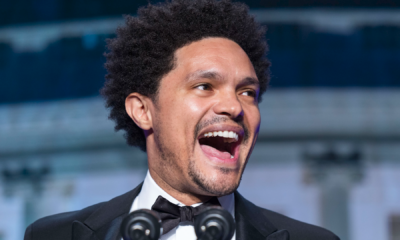

Trevor Noah Hosts Final Daily Show
-


Donald Glover And Maya Erskine Film Mr. And Mrs. Smith…
-
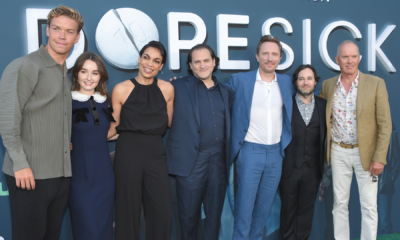

Michael Keaton leads stars of Hulu hit Dopesick at screening…
-


Jeff Bridges takes to red carpet to launch new FX…
-


Guy Fieri To Host Chefs For Maui Fundraiser To Benefit…
-


Tracy Spiridakos Leaving ‘Chicago PD’ After Season 11
-
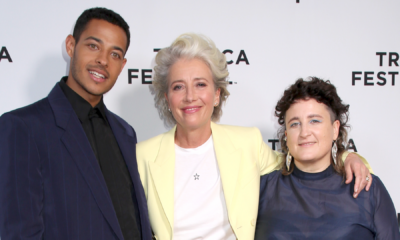

Emma Thompson premieres her risque new Hulu film Good Luck…
-
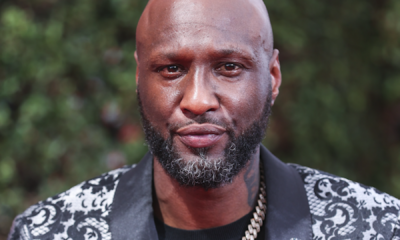

Lamar Odom Announces New Documentary About Khloé Kardashian Split
-


Priyanka Chopra Jonas Says Pay Parity With Male Co-Star On…
-
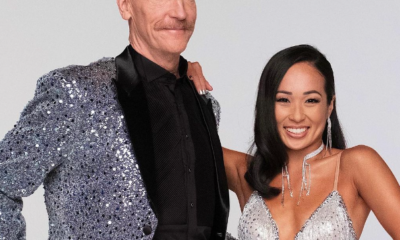

Matt Walsh Exits “Dancing with the Stars” Amid WGA Strike

